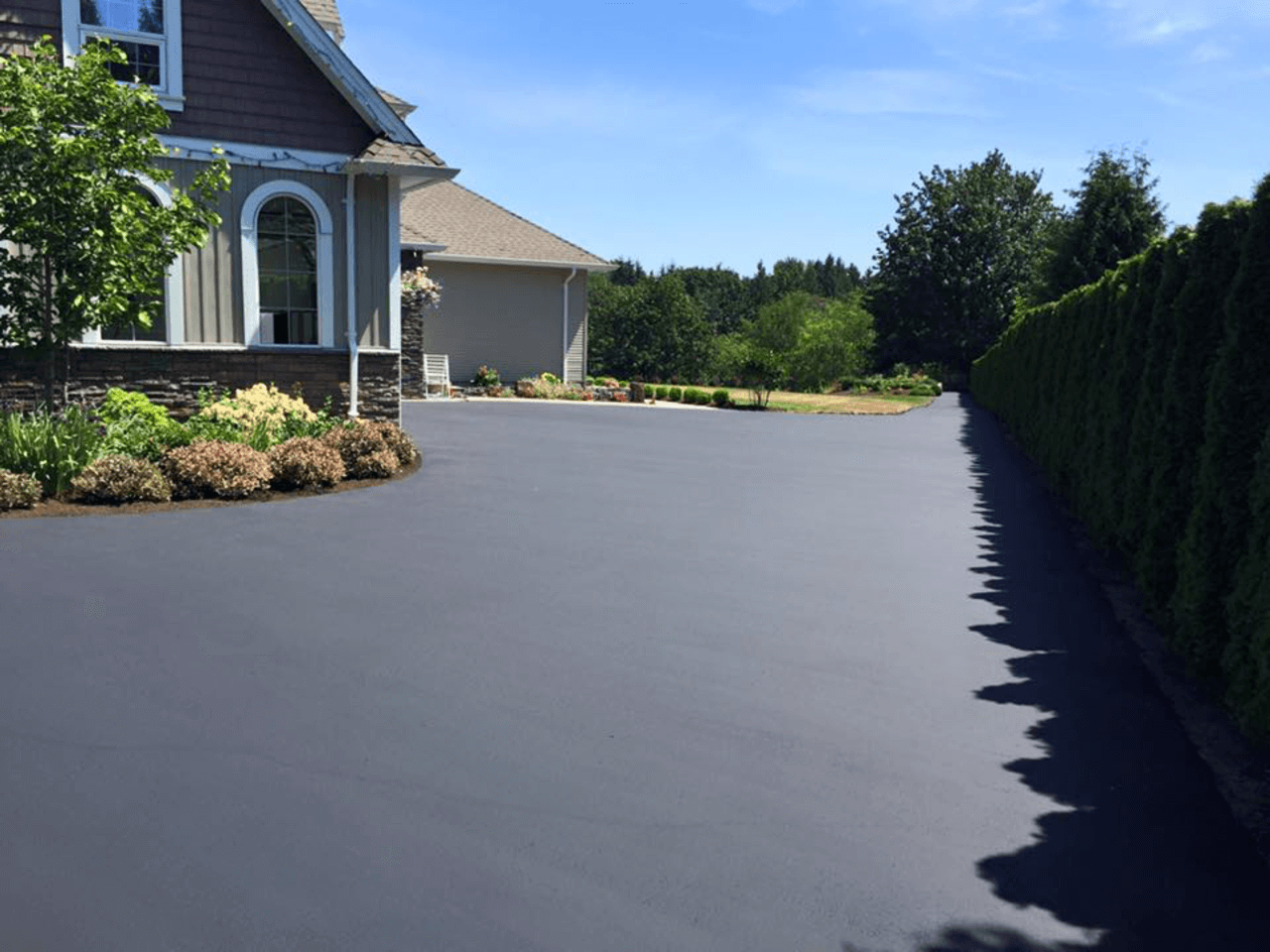The Do’s and Don’ts of Caring for Your Newly Paved Driveway
Learning the do’s and don’ts of maintaining your newly paved driveway will mean that it can stay in good shape for decades to come. Protective measures should be considered and planned for within the first couple of weeks. A newly paved driveway has a curing period of between 90 to 120 days, during which time the asphalt has to set. A longer curing process with minimal heavy vehicle traffic, or long stationary placement of heavy objects, allows the surface better to withstand the weight of vehicles in the future. With a proper maintenance plan, your driveway can stay in great condition for many years.
A well-maintained driveway is one of the first things that visitors will notice about your home. That becomes even more important if you are hoping to sell your home to that visitor. The impression of your property, in general, is greatly affected by the condition of your driveway. But it is not only for curb appeal purposes that should care for your driveway, if your driveway is in poor condition, it can also be a safety hazard. Walking or driving can get risky.
Factors That Can Damage A Freshly Paved Driveway
Well-maintained pavement is one of those things that most people take for granted until it is in poor condition. The key to maintaining your driveway, as with most things, involves early and regular attention. There are some important things to consider from the very beginning that can contribute to the ageing and wear and tear of your driveway:
- If water is left to puddle, excessive moisture can penetrate the surface, wash away unbound solvents, and accelerate deterioration.
- Weeds, tree roots, and grasses can take hold in cracks and potholes. Call your paver immediately if you see this happening with a newly paved driveway.
- Automobile traffic and parking. You might keep vehicles, trailers, RVs, or boats parked on pieces of plywood to prevent them from sinking into the asphalt pavement.
- Depending on when your paving is done, hot weather can also soften asphalt, making it more susceptible to damage. Likewise, once the temperature drops near or below, freezing the curing process stops and then recommences in the spring.
- Gas or oil spills also cause asphalt surfaces to deteriorate. Clean any such spills as quickly as possible using detergent and warm water.
- Snow and ice should be removed, as well as other debris that might damage the surface such as piles of leaves.
A newly paved driveway is worth protecting. This is one of those times when that old saying about an ounce of prevention is worth a pound of cure is particularly true.
Factors That Can Help Protect Your Driveway
Seal coating the surface of your paved driveway every two to three years is a great way to assure that the surface has a long life. Seal coating can slow down the ageing process. If you see cracks or potholes start to form, or even if the surface starts to look grey and gravelly, sealing is the right move.
- Sealing slows down the process of the asphalt “binders” flaking and chipping away, causing your asphalt driveway to deteriorate and eventually fail.
- How soon should you seal after installation? Please wait until it is fully cured. Asphalt cures from the outside in, so wait six months before you have any sealant applied.
- How many coats should be applied? If it is sprayed on, it should receive two coats; if it is poured and brushed in, one good thick coat should do it.
- Not all sealants are of the same quality. Seal manufacturers usually provide higher quality with additives like hardeners, rubber, and sand. This sealer will last much longer than those purchased at building supply stores.
- The cost of sealing a driveway is based on strict calculations and not as simple as just calculating square feet. When you start talking square feet, that’s when some contractors learn how they can increase their profit margin. A complete quote should not just include the profit margin; it should include the application cost, cost of the sealer material, transportation, the repair of damaged areas, crack sealer application and material, and cleaning and preparation.
- Once you seal your driveway, be aware of the proper precautions for a couple of weeks. Here are some things to look out for:
- Trash Collecting Trucks or moving vans: especially if they turn around in your driveway
- Certain erosive cleaners. Avoid citrus-based cleaners
- Oil or fuel spills may cause damage to a newly applied sealer.
- Turn your wheels with power steering while your car is stopped. Any sharp turn, even when your vehicle is moving, should be avoided.
You should always feel free to call us about these matters or questions. There’s more at stake than the surfacing. It is about being satisfied with us.
Burnaby Blacktop is the Right Call
Please take advantage of our expertise by letting us help. We are a great resource for diagnosing problems and for answering any questions you may have. We notice things that can have a long-term effect on your pavement’s life, like poor drainage or an unstable foundation. We can take on the responsibility for maintaining your pavement and establish the right course of action to prevent any further damage. When you call Burnaby Blacktop, you have one less big thing looming to worry about, so give us a call today! All work is completed in a workmanlike manner and according to the highest standard practices. Burnaby Blacktop is an officially bonded construction firm with the Surety Association of Canada.
